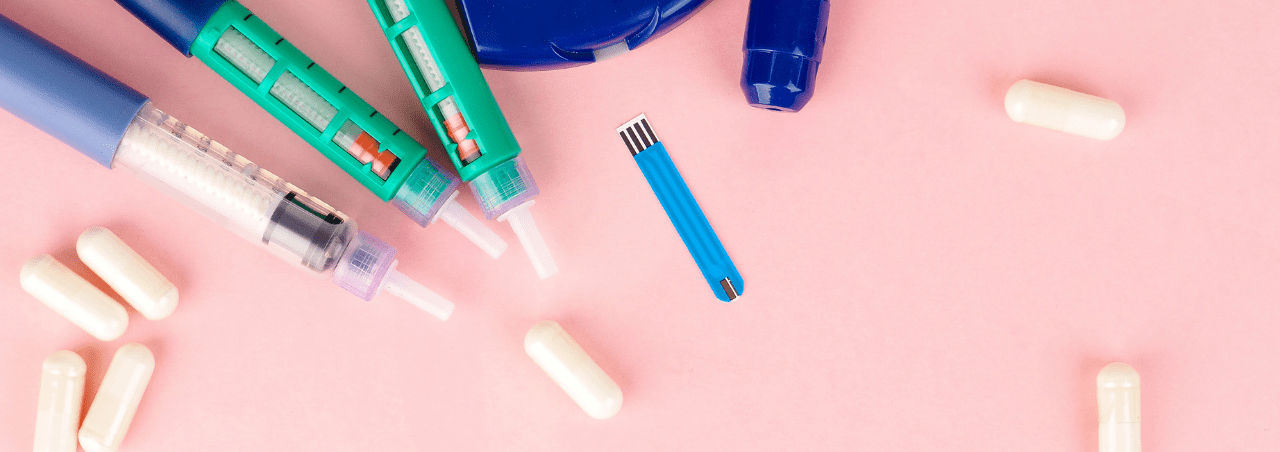
My dear friend,
If you also suffer from diabetes, you will now want to learn more about the latter’s possible impact on cystitis, am I right?
You should know that, unfortunately, the two are related. But don’t worry! In this article we will go into more detail and tell you about the solution that has helped so many women in your situation.
Remember: you are never alone. ❤
Infections, particularly urinary tract infections, are common (and often, alas, more serious) experiences for people with diabetes. If left untreated, they can lead to serious kidney problems, such as renal abscesses, emphysematous cystitis, pyelonephritis, and renal papillary necrosis.
Yeah, that’s right.
As you surely already know, in type 1 diabetes, the pancreas stops producing the insulin that regulates blood glucose levels. In type 2, cells become less sensitive to insulin. In both types, excessive blood glucose levels can therefore reduce the effectiveness of the immune system.
And it is exactly the increase in sugar that creates a series of altered defense mechanisms that the body puts in place to protect itself from urinary tract infections.
Now, a study by researchers at Sweden’s Karolinska Institutet investigates just the mechanism that is triggered by excess glucose.
The study finds that high sugar concentrations in diabetes reduce levels of a natural antibiotic in the body: the antimicrobial peptide psoriasin.
It sounds like a bad word, but it is simply an important barrier against infection: being a natural antibiotic, psoriasin is meant to protect us.
Based on this study, it appears that diabetic patients’ bodies do not produce enough, making these people more susceptible to infections.
Read also: How to fight recurrent cystitis: finally a natural remedy that works!
The researchers analyzed urine, urinary bladder cells and blood serum samples from some nondiabetic adult volunteers and others with prediabetes or diabetes. The study did not include people with a diagnosis of ongoing UTI (urinary tract infection).
As was to be expected, the analysis revealed that participants with prediabetes or diabetes had reduced levels of psoriasin.
The study’s lead researcher, Prof. Annelie Brauner, said such reduced levels weaken the protective barrier function of cells and increase the risk of bladder infections, such as cystitis.
Okay, so to recap:
But what exactly is his role?
To go into more detail, this is a protein that inhibits the binding of bacteria to epithelial cells and endothelial cells; therefore, if, thanks to psoriasin, these bacteria cannot bind to bladder epithelial cells, they cannot grow.
And if their growth is inhibited, they cannot propagate inside the bladder.
Therefore, if psoriasin is missing, bacteria will be able to proliferate, causing a true infection.
In this regard, the research found an interesting finding: high concentrations of glucose were found to reduce levels of the antimicrobial peptide psoriasin, while insulin had no effect on it.
At this point you might be asking how to treat cystitis effectively, am I right?
Let’s see it now.
Needless to say at this point, but we say it anyway: taking care of your diabetes evidently helps prevent urinary tract infections.
As we have repeatedly said in this article, high blood glucose levels can increase the risk of UTI, so it is important to keep blood sugar levels as stable as possible. How? By following a healthy, balanced diet, for starters.
Simple steps can make a huge difference in the onset of cystitis, such as:
If you have diabetes, however, these tips are not enough: it is essential to schedule regular appointments with your doctor and always ask questions about how to take care of yourself. For example, many women with diabetes have asked me if they could take D-mannose, a plant monosaccharide that helps expel bacteria quite naturally, during urination.
Well, the answer is yes: you can take D-mannose even if you have diabetes, and here I explain why.
For anything else, remember you can always write to me!
I hug you tightly,
Lorenza
Read also: Can cystitis be treated with acupuncture? Let’s have clarity
Why are people with diabetes more prone to urinary infections?
People with diabetes are more prone to urinary infections, including cystitis, due to an insufficient presence of the protein psoriasin, which protects against infection.
What are the preventive measures against urinary infections for those with diabetes?
High blood glucose levels can increase the risk of urinary tract infections, so it is important to keep blood sugar levels as stable as possible by following a healthy, balanced diet. Simple steps such as drinking plenty of water, not holding back pee, taking care of intimate hygiene, and wearing cotton underwear can make a difference in the onset of cystitis.
Can I take D-mannose if I have diabetes?
D-mannose, a plant monosaccharide that helps expel bacteria naturally during urination, can also be taken by women with diabetes to prevent cystitis.